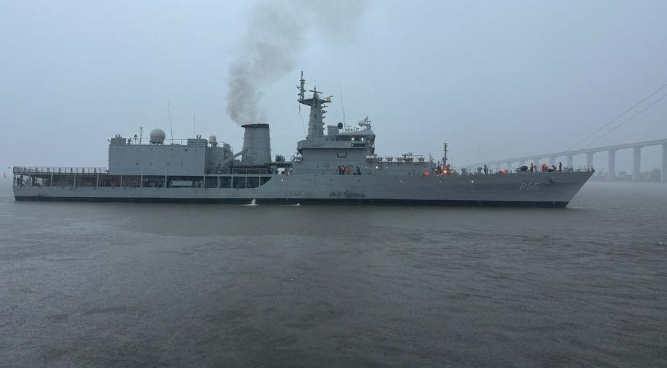The Western Indian Ocean has emerged as a pivotal arena in contemporary geopolitics, attracting significant attention from global powers and regional stakeholders alike. This strategic significance stems from its unique geographic location, encompassing critical maritime trade routes, resource-rich waters, and geopolitical hotspots. As a result, the region has become a focal point for various geopolitical interests, including economic, security, and diplomatic considerations. India, the United States, France, Australia, the United Kingdom, and Japan have extensive diplomatic, economic, developmental, and military engagements across the Indian Ocean region. However, it’s notable that each of these countries possesses distinct interests and levels of influence in the area.
Over the last twenty years, India has significantly bolstered its maritime presence and strategic investments across the Indian Ocean, reflecting its contemporary approach to maritime affairs and its integral role in Indian foreign policy initiatives. New Delhi has established strong partnerships with coastal and island nations throughout the region. For instance, in 2021, India provided Mauritius with a $100-million line of credit aimed at enhancing security and military capabilities. Furthermore, India’s economic influence in the Indian Ocean is substantial, with exports reaching eighteen out of the thirty-three countries in the region, while also importing goods from key nations such as Australia, Saudi Arabia, and the UAE.
The visit of Indian Foreign Minister S Jaishankar to Tanzania in 2023 coincided with the arrival of the Indian Naval Ship Trishul at Zanzibar, symbolizing India’s amicable relations with its maritime counterparts and its aim to advocate for the interests of the Global South. This diplomatic engagement followed closely after INS Trishul’s participation in the National Day celebrations of Seychelles, showcasing India’s dedication to strengthening bilateral ties and fostering maritime security cooperation within the region. Furthermore, this visit aligns with the ongoing India – Mozambique – Tanzania (IMT) Trilateral Maritime Exercise, known as TRILAT-2024, underscoring India’s proactive involvement in promoting stability and collaboration across the Indian Ocean domain. The India – Mozambique – Tanzania (IMT) Trilateral Maritime Exercise, known as TRILAT-2024, concluded its second edition on March 29 after a week-long naval exercise. This collaborative effort between the three countries unfolded over two phases, commencing on March 21.
The exercise aimed to bolster maritime security in the region through joint exercises, training sessions, and collaborative activities, as highlighted in a statement by the Indian Navy. Representatives from the Indian Navy, namely INS Tir and INS Sujata, participated in the IMT TRILAT 24. The initial phase, spanning from March 21 to 24, saw intensive training sessions conducted simultaneously on INS Tir at Zanzibar and INS Sujata at Maputo. These sessions covered a range of activities, including training on Visit, Board, Search, and Seizure (VBSS), Damage Control and Firefighting Drills, communication protocols, medical lectures featuring CPR demonstrations, and casualty evacuation (CASEVAC), as outlined by the Indian Navy.
The closing ceremony, hosted onboard INS Tir and INS Sujata at Nacala, Mozambique, brought together representatives from all three participating navies. In their closing remarks, they celebrated the successful collaboration and the deepened understanding of maritime capabilities and shared objectives achieved during the exercise. The emphasis was placed on sustaining this collaborative effort to ensure maritime security and regional stability, highlighting India’s steadfast commitment as the preferred security partner (PIB 29 March 2024). India has maintained close ties with both Mozambique and Tanzania, considering them as gateways to Africa, offering ample opportunities and potential for partnership across various sectors. However, collaboration in maritime security is particularly crucial for these nations due to the prevalence of non-traditional security threats. This collaboration is essential not only for economic trade and growth but also from a geostrategic standpoint.
The ongoing exercises between these nations assume heightened significance for India, considering the increasing influence of China, which poses concerns for India’s security and strategic interests. The growing partnership between India and the coastal countries of Africa is therefore imperative. India’s consider as a net security provider in the Indian Ocean and a credible alternative for African nations underscores the seriousness of its foreign policy, especially concerning maritime security. This exercise serves as a testament to India’s commitment to strengthening security cooperation in the region.
Author: Dr. Kshipra Vasudeo is an Assistant Professor of Political Science at University of Mumbai.
Disclaimer – The views and opinions expressed in the commentaries are those of the authors and do not necessarily reflect the official policy or position of Forum for Global Studies.

